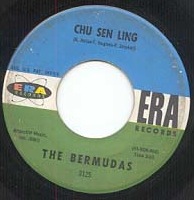Think the younger generation, growing up with visions of one day mastering Pro Tools, has fantasies like this?


It’s funny how we sometimes get introduced to Great things in very pedestrian ways. When I was about 14, somebody played me the first Blues Brothers album. That was the first time I ever heard any music written by Isaac Hayes — in this case, “Soul Man” — and, even in that watered-down form, it blew my mind. My best friend eventually discovered that the original was performed by Sam & Dave, and we went on a furious, pre-Internet scavenger hunt for something, anything, by that duo. (This was especially hard to do because, a.) we were 14 and didn’t know shit about anything; and b.) I was living in Central America at the time.) At last, a trip to the Panama Canal Zone post exchange yielded what I was looking for: a copy of Sam & Dave’s greatest hits, and I was smitten.
As I got older and nerdier about these things, I learned that — as talented as Sam & Dave and the Stax house band were — the real magic in those grooves was the result of an amazing compositional team: Isaac Hayes and David Porter. As I explored their work in the context of everything else that came out of the Stax factory, I realized that — as outrageous as this sounds — those guys didn’t write *one* bad song. Not one. It was all gold. Honest to God, those guys had a batting average better than anybody’s. Better than the Beatles, people!
So Isaac Hayes, at just 65 years of age, is now gone. In trying to write a fitting epitaph for a man I believe to be one of the greatest composers in the history of American popular music, I feel tempted to chronicle his rise from the mean streets of Memphis to global mega-stardom (because his story is a truly compelling one) — but really, that stuff doesn’t mean shit to me, now that he’s dead. What matters to me, obviously, is the man’s music. Like James Brown, or Stevie Wonder, or Duke Ellington, he was a driving force behind a deep transformation in Black popular music, introducing sophisticated, moving (but still funky) chords, riffs and arrangements into a form — in his case, southern Black music targeted at southern Black audiences — that had become paralyzed by the success of soul numbers featuring three chords and time-worn, threadbare melodies.
And speaking of being paralyzed: I have spent the last hour trying in vain to pick the right group of songs to showcase this man’s particular genius. Like so many other great pop composers, you’ve already heard some of his best work: “Soul Man,” “Hold On, I’m Coming,” “I Thank You,” “B-A-B-Y,” and literally dozens more that made it to the pop charts. But even the outstanding obscurities are too numerous to feature here. I mean, where do I start? The guy wrote more than 100 songs during his stint with David Porter at Stax, and they’re all good! And what should I encourage you to listen for? The arrangements and production touches? The sophisticated melodies and counter-melodies? The deep, righteous groove that permeates everything he wrote in the 60s? I’m truly at a loss here. A great loss. We all are. Isaac Hayes, I thank you. We all thank you. You were amazing.
HVB
Tell you what — let’s do this New Orleans-style. First, the sad, mournful farewell:
“If I Ever Needed Love”, Ruby Johnson
Then, the joyous affirmation that one of these days we’ll all be together in the great beyond:
Greetings, fellow seekers of the weird, the wonderful and the purportedly worthless! As RTH slogs its way through the merits of various over-produced girl groups from the ’80s, ’90s, and beyond, I thought I’d take a moment to showcase a couple of singles I found while scouring the bins at a local flea market.
First up: The Goodees, a girl group signed to Stax’s “Hip” sub-label as a result of winning a local talent contest in Memphis. Some of you might be familiar with their extremely modest hit “Condition Red” — but it was the B-side, “Didn’t Know Love Was So Good”, that really got me. That Isaac Hayes piano stab after the start of every verse — dang! Just goes to show you how one simple part can really make or break a tune.


Here’s my second thrifty find of the girlie variety: “Chu Sen Ling”, by oriental girl group The Bermudas. Or… wait. Not an oriental girl group. Turns out, the “Bermudas” — as well as The Majorettes, The Georgettes, Joanne & The Triangles, and Beverly & The Motorscooters — were all fake “bands” created by Los Angeles musical entrepreneur Rickie Page to showcase the talents of her immediate family. I’ll let Spectropop continue the story; it is a fascinating one:
This particular outfit comprised Rebecca (Becky) Page, her older sister Joanna, their mother Rickie and Susie Kuykendoll, Rickie’s sister. Rebecca shared lead vocals with Rickie, whose oldest daughter Sheilah sometimes took her place in photos of the group. In 1957 Rickie Page had begun a stream of recordings using her own name for every label under the California sun, not to mention some in Nashville. She also waxed as a member of the Jordanaires, the Spectors Three and Bobby ‘Boris’ Pickett’s Crypt-Kickers; factors which make her one of the unsung heroines of the early-1960s Los Angeles scene. Rickie is still active in the music business, composing songs from her base in Fresno, California.
Anyhow, for me, the point is: I love this song!
Folks, I’m busy these days, so it’s hard for me to wax philosophic on this kind of thing, but I do have one far-ranging, and hopefully revealing, question for all of you: in one sentence, what purpose do “girl groups” serve?
I look forward to your responses.
HVB

